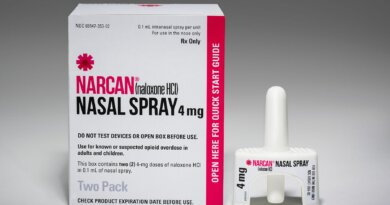Menopause May Start Earlier for Aging Women With HIV
June 27, 2023 – How does HIV affect menopause?
HIV, or the human immunodeficiency virus, affects the body’s immune system and can lead to AIDS if it goes untreated. HIV has been called a “graying” disease, as those 50 or older make up almost half of infections in the United States.
Among women newly diagnosed with HIV, 19% were ages 45 to 54, and 17% were 55 and older, according to the CDC. Researchers are now examining the connection between HIV and menopause – and the virus’s impact on a woman’s health can be significant.
“Studies have shown that early menopause may occur 5 years earlier in women with HIV than women without HIV,” said Monica Gandhi, MD, MPH, a professor of medicine at the University of California, San Francisco, and director of the Ward 86 HIV Clinic at San Francisco General Hospital/UCSF. “The reasons for this include chronic infection, lower estrogen levels, chronic stress response, immunodeficiency, metabolic changes that can occur with HIV such as weight changes or insulin resistance, or chronic medication use.”
There are a number of health implications for women who enter menopause sooner, including a higher risk for osteoporosis because their bones aren’t as dense.
“HIV is a well-studied risk factor for osteoporosis,” said Anna Hachfeld, MD, MSCi, a senior physician in the Department of Infectious Diseases at Bern University Hospital in Switzerland, and co-lead author of a recent study looking at the health implications of early menopause and HIV. “People living with HIV have in general more non-HIV related risk factors such as smoking or alcohol use. Like HIV, menopause is a risk factor for osteoporosis – this is likely mediated through hormonal changes.”
But there’s a lot you can do to stay healthy. A new Canadian study found that HIV-positive women who have access to good health care go through menopause at similar ages to women who are HIV-negative, for instance. Here’s the information you need to work best with your doctor, get relief from menopausal symptoms, and keep treating HIV effectively and safely.
How Do Older Women Contract HIV?
HIV is transmitted in the same ways to everyone – through certain body fluids, namely blood, vaginal fluid, or semen. The Mayo Clinic explains that HIV is spread through sexual contact and through infected blood that enters your body. HIV is also spread through breastfeeding or during childbirth.
It’s actually easier for an older women than other people to become infected with HIV through sex, according to the U.S. Department of Health and Human Services Office on Women’s Health. This is because after menopause, lack of lubrication in the vagina raises the risk for tiny cuts, through which the virus can be transmitted. To protect yourself and others, it’s very important to use condoms when you have sex, and to get tested for HIV if you don’t know your status.
What Are the Symptoms of HIV?
HIV.gov explains that although some people with HIV have no signs at all, others can have flu-like symptoms, including:
- Fever and chills
- A skin rash
- Night sweats
- Achy muscles
- Feeling tired
- A sore throat
- Lymph node swelling
- Ulcers in your mouth
What Are the Symptoms of Menopause?
Some symptoms of menopause include:
- Vaginal infections
- Irregular bleeding, like skipped periods or a change in flow
- Urinary problems
- Sexual problems
- Hot flashes
- Night sweats
- Disrupted sleep
- Low mood
- Depression
- Anxiety
- Trouble concentrating or remembering things
- Joint and muscle pains
- Headaches
Do Women with HIV Have Different Symptoms of Menopause?
In short: Yes.
“Studies have shown that women with HIV have a higher prevalence of menopausal symptoms than women without HIV even at similar ages. In one large study, the most common symptoms of menopause among women with HIV were joint pain, hot flashes, exhaustion, and sleep disturbances,” Gandhi said.
If you’re HIV-positive, you may also find that your periods don’t change gradually – they might just stop altogether suddenly.
“Women with HIV are three times more likely to have absent periods, compared to those without HIV,” said Anna M. Powell, MD MS, an assistant professor of gynecology and obstetrics and co-director of the Johns Hopkins HIV Women’s Health Program at Johns Hopkins Medicine in Baltimore.
It’s possible, though, that a lack of menstruation actually has to do with another health issue. A University of British Columbia review found that in numerous studies, HIV-positive women reached menopause on average between 46 and 50 years old. Among the women who reached early menopause, a high percentage had primary ovarian insufficiency (POI), which can also cause periods to stop. (While POI is not a condition specifically linked to HIV, both conditions do link to osteoporosis.)
If you stop having periods, it’s a good idea to ask your doctor to test you for the cause of your amenorrhea, the medical term for missed periods. Your doctor can do a biochemical confirmation of menopause so you can then address any troublesome symptoms you’re having with the right treatment.
What Health Changes Should You Make to Address Both Menopause and HIV?
It’s important to focus on your overall health at this time. British researchers who treated HIV-positive women during their menopause transition found that these patients had a high rate of other conditions during menopause, which speaks to the need for women to manage HIV at this stage in their lives. Also, a multi-university research team found that menopause is linked to immune activation in women with HIV. This happens through dysfunction in the gut microbiome and can make women more likely to have HIV complications such as heart disease and cancer.
Making sure you’re eating a balanced diet is a great way to cut your risk for both of those diseases. Also, new research shows that HIV-positive women often lose weight instead of gaining it at menopause. This may be due to a reaction to antiretroviral therapy (ART), which uses standard HIV drugs. It’s key that while you take your HIV medication, you also get enough calories.
Drinking alcohol may not be right for you if you have HIV– especially excessive alcohol use. It’s important to discuss whether you can or should drink alcohol with your doctor.
Changing your medication is not something to worry about, most likely.
“Unless someone is on an older antiretroviral regimen containing certain protease inhibitors like fosamprenavir, or certain NNRTIs [non-nucleoside reverse transcriptase inhibitors] like efavirenz, HIV medications do not need to be adjusted,” said Powell.
To prevent osteoporosis, ask your doctor about upping your calcium intake – a vitamin D supplement may be right for you.
You most likely can take hormone replacement therapy for a brief period if you and your doctor feel that’s a good choice for symptom relief.
“Menopausal symptoms are undertreated and HRT is under-utilized in women with HIV,” Powell said.
Make the healthy choices that are right for you – you can feel better than ever.
“Safe and effective treatments for menopause are available,” Powell said. “With the advent of more tolerable and safe ART regimens, women with HIV are living well into their post-menopausal years.”



